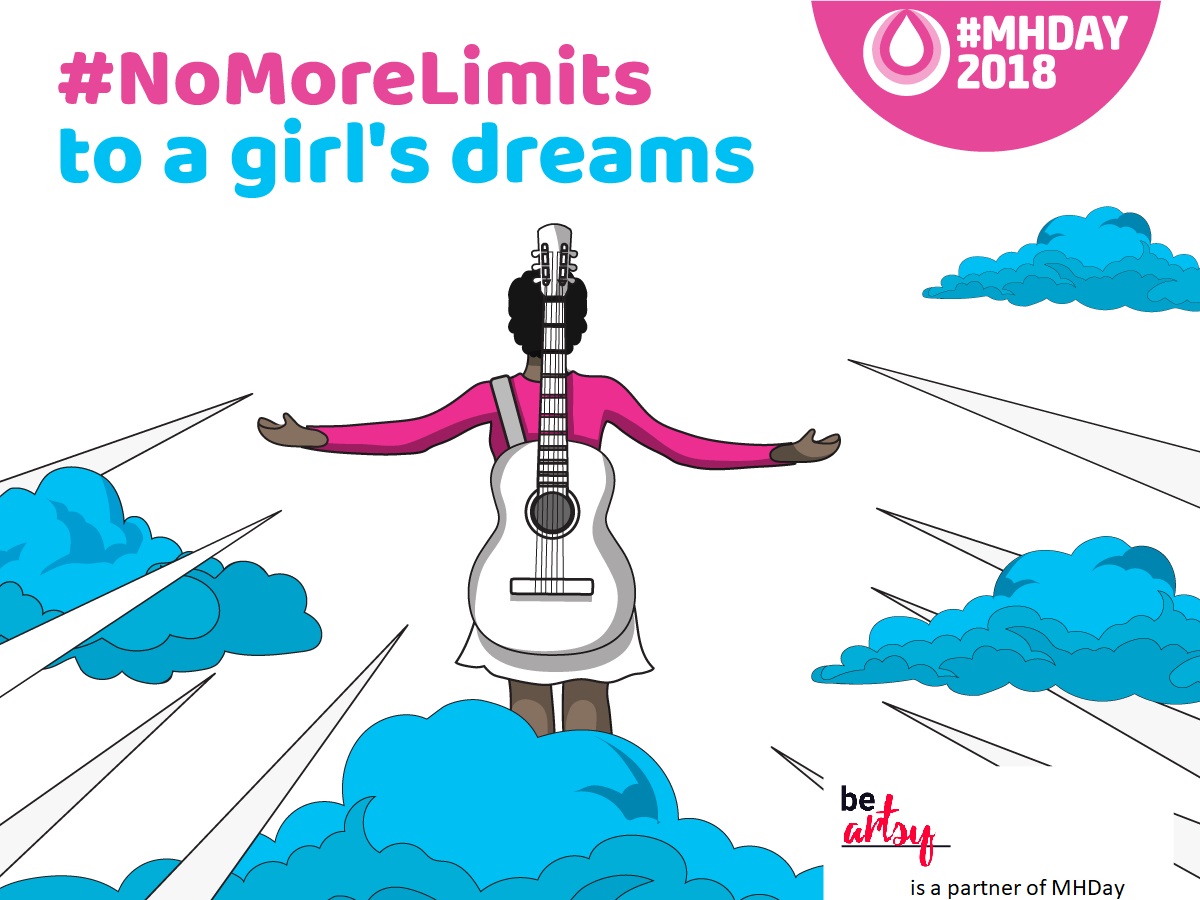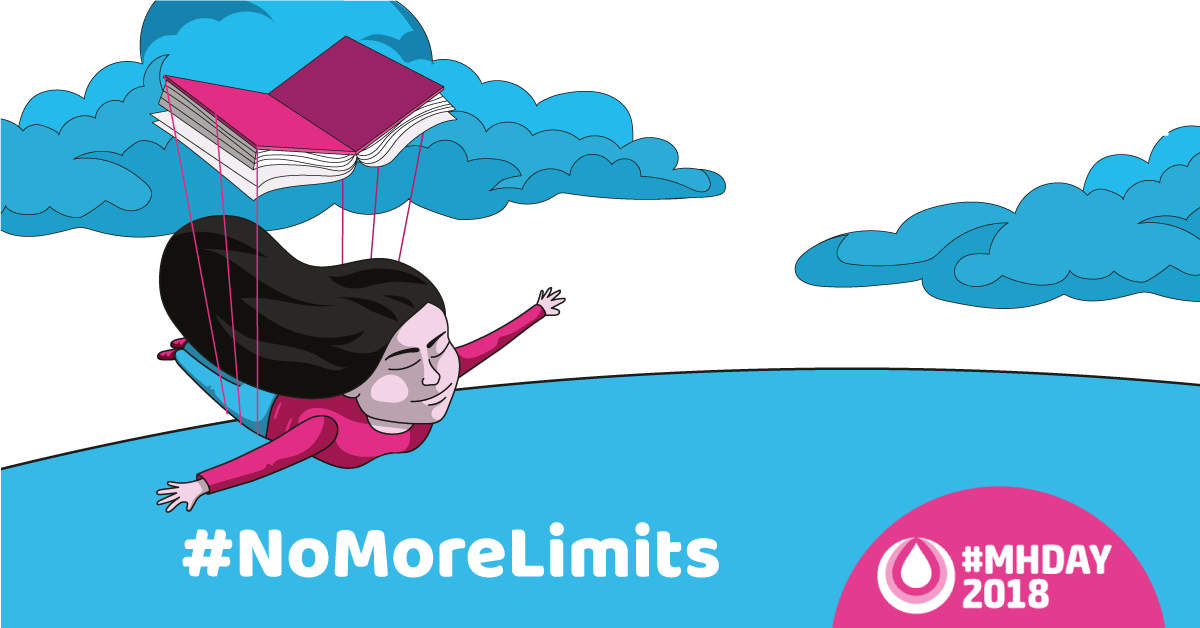For many of the global population of women and girls, menstruation is time of stress and shame. Some women and girls not only have limited access to and knowledge of clean menstrual management resources and safe, private spaces to dispose of materials, but they consider both themselves and menstruation itself as dirty and shameful.
To combat these realities and raise awareness of the challenge of menstrual health management (MHM), the 28th of May 2018 marks the fourth international Day of Menstrual Hygiene Awareness. The day was designed as a platform for the voices of individuals, organisations, businesses and the media to unite and break the silence around MHM issues faced by women and girls around the world.
For many girls, this culture of shame combined with a lack of access to adequate resources and MHM knowledge results in issues of self-confidence and school absenteeism. Ensuring girls stay in school and fully engage in the learning process with confidence is critical to the empowerment focus within the sustainable development goals. When girls go to school and engage in the learning process, they are empowered to reach their full potential.
In villages across Far-West Nepal where the practice of chhaupadi is still prevalent, MHM practices and the empowerment of women and girls is an important issue of focus. Chhaupadi is a deeply entrenched social practice where women and girls are considering impure during menstruation and are subject to a number of prohibitions which deprive them of their most basic needs.
These prohibitions include being forbidden from touching food others will consume, crossing water, restricted school attendance, and entering the family home, requiring women and girls to sleep in cattle sheds or makeshift huts. Those subject to the practice risk exposure to rape, snakebites, smoke inhalation, and animal attacks. Furthermore, the restriction of girls from school during menstruation is harmful to their education. Poor MHM tools and knowledge is linked to low education outcomes, as well as broader negative effects to employment, health and overall development.
Although the Government of Nepal declared chhaupadi illegal, the practice is deeply embedded in social norms and cultural practices. The aim of grassroots social organisations like be artsy is to empower girls in Far-West Nepal through MHM community education, and the provision of menstrual cups and hygiene kits. Ruby Cup is the donor of menstrual cups to be artsy, that also have some individual and other private donors. This approach is designed to reduce school absenteeism, improve girls’ self-confidence, and reduce the prevalence and negative impact of chhaupadi through increased knowledge of menstruation amongst communities.
It is important that days like today exist to shine a light on the work that organisations do to enable women and girls’ empowerment through MHM education, as well as highlight what there is still left to accomplish. It is with global support and awareness combined with grassroots local engagement that true change will be achieved to the benefit of women and girls across the globe.
We would like to remind you of the different ways to continue collaborating with us:
- paypal.me/beartsy
- Bank transfer to the Spanish Account,
IBAN ES23 0081 0900 8200 0430 1934
BIC: BSABESBB - migranodearena
- Teaming
Written by Kristy Davies.





Comments are closed.